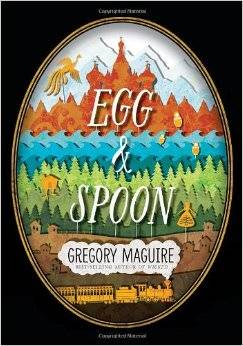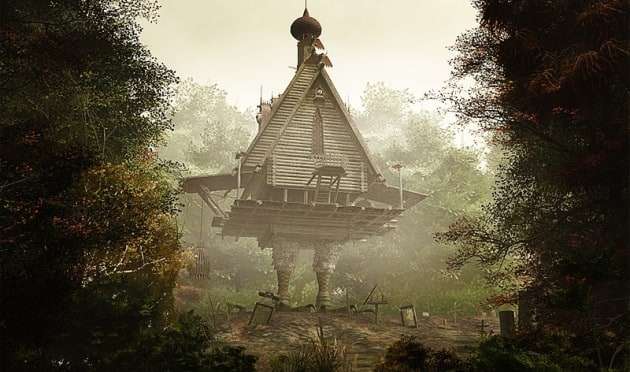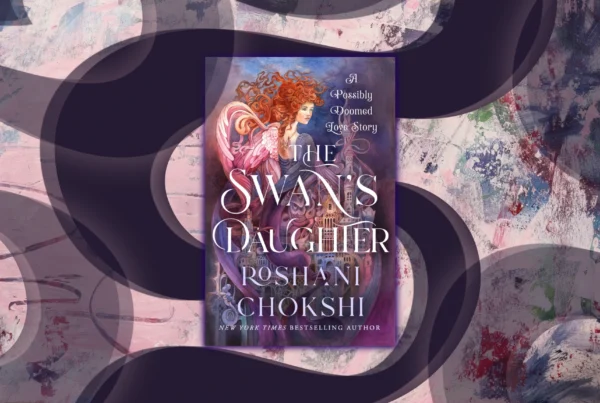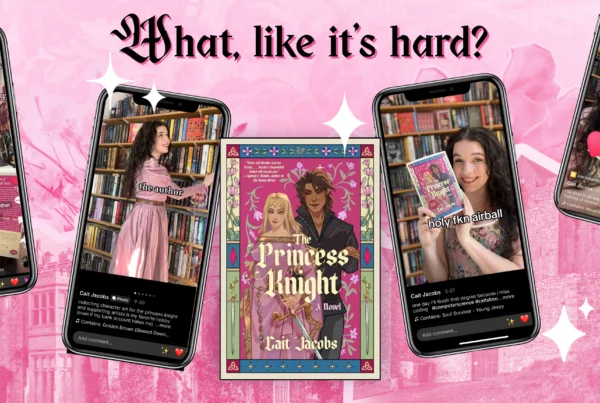Are you a fan of Once Upon a Time and Maleficent? Then thank Gregory Maguire. His bestselling novels, like Wicked: the Life and Times of The Wicked Witch of the West and Confessions of an Ugly Stepsister, helped usher in our current cultural obsession with the realistic fairytale.
 His latest book, Egg and Spoon, (Candlewick Press, September 9) finds Maguire tackling Russian fairytales, like the Firebird and Baba Yaga and her moving house with the legs of a chicken. Set around 1907, it examines poverty under the Tsar, family ties, and the courage that children need when their lives are turned upside-down. It may be aimed at a younger audience, but you won’t want to miss this exciting spin on Russian folklore (plus, did we mention the chicken legs?).
His latest book, Egg and Spoon, (Candlewick Press, September 9) finds Maguire tackling Russian fairytales, like the Firebird and Baba Yaga and her moving house with the legs of a chicken. Set around 1907, it examines poverty under the Tsar, family ties, and the courage that children need when their lives are turned upside-down. It may be aimed at a younger audience, but you won’t want to miss this exciting spin on Russian folklore (plus, did we mention the chicken legs?).
BookTrib was lucky enough to chat with the busy writer about books, television and the importance of snark. It didn’t take us long to realize that Maguire speaks our book-loving language, but what really sold us was this: “Books hold you in a hug, if they’re really good. And who wants to leave a hug?”
Well put, Mr. Maguire.
 BOOKTRIB: What made you chose Tsarist Russia as the setting for Egg & Spoon? Was there something that drew you to that particular time or folklore?
BOOKTRIB: What made you chose Tsarist Russia as the setting for Egg & Spoon? Was there something that drew you to that particular time or folklore?
Gregory Maguire: One of the things that always occurred to me as a kid was that I seemed to be able to read English fairytales, Irish fairytales, the fairytales of Perrault (which have a French flavor) and the fairytales of the Grimm Brothers, which are Germanic. I could read fairytales of Russia, but I couldn’t go any further. That is, I couldn’t easily read the fairytales of China or Japan or India; they had gotten too exotic for me before I had a wide education. But the fairytales of Russia were the farthest away from me that I could still inherently understand, so they were the most exotic. They became my paradigm and my measuring stick for what was the most exotic and romantic place on the planet that I could still understand. That’s why the part of my mind that thinks, “Where is the world magic?” goes back to Russia.
BT: In general, the way people tell stories seems to be a common theme that you explore in many of your books. This is especially true in Egg & Spoon—it reads as a story about how we tell stories. What made you chose to tell Egg & Spoon from the point of view of a prisoner, recounting that tale of Cat and Elena?
GM: I started writing the story without the narrator at first. I started with Elena and her adventure in Miersk and leaving for Saint Petersburg on the train by accident. I kept thinking it sounded like a fairytale, but it was too flat. I didn’t want to bore modern readers, and I needed to have a slightly higher snark quotient. Otherwise, if people are going to read fairytales, why not read Grimm? So then I lit on the fact that the story was being told by Brother Uri, and that you had to weigh for yourself what parts of it might be true or not true. Once he came into the picture, he gave me a chance to tell the story and to comment on it, too. That made it seem more modern to me, less old-fashioned and archaic, and more like a real adventure.
BT: You’ve written books for both children and adults. What do you feel is different when you set out to write a children’s book from a novel for an older audience?
GM: When I know children are going to be reading my books, I feel a heightened responsibility to be honest. Some people say that my writing is dark, but I wouldn’t say it’s dark. I would say it’s honest. I would say that whatever desperate situations I put my characters through—including the liquefying of the polar ice cap and the flooding of Russia—it’s so I can place children in situations of peril where they can find their own strength. And that, I think, is honest. It’s honest that the world is dangerous, and it’s honest that children are strong. If I didn’t make the world dangerous, you wouldn’t believe in the strength of children. And children wouldn’t believe in the strength of themselves.
 BT: Do you prefer to write for one or the other?
BT: Do you prefer to write for one or the other?
GM: No, I like a mixed diet. Some doughnuts and some green beans. I do fret over prose style for children a little more than I do for adults, because I want every sentence to be comprehensible. I can’t merely amuse myself. Sometimes in adult fiction I can write something that’s just going to satisfy me and I would never do that for children. I try to weed out anything that isn’t entirely pertinent to their capacity and interest.
BT: You’ve been credited with reinventing the fairytale and giving us more realistic portrayals of overly familiar stories. What inspired you to write about fairytales in the first place?
GM: I was remembering, not long ago, about how I used to like to go to the library. I was not a monogamous reader. I was a serial lover of everything I could put my hands on. I would read—without a great deal of interest, I’ll admit—sports books, horse books, what were called “girl” books. But the stories set in magical lands were the ones that made me vibrate the fastest.
I can remember, to this day, when my third- or fourth-grade buddy and I discovered the Narnia books on the shelf in the library. We read voraciously all over the library, and then one day I saw something that said “Volume Two” and “Volume Five,” and I said, “Oh that sounds good, a series!” Series books were much less common back then, and I thought, “Oh, wow!” I looked at the covers and one of them was The Lion, The Witch, and the Wardrobe The picture was of a dwarf holding a cup of steaming something, drawn by Pauline Baynes. It was like meeting somebody who was about to become my lover. I mean, my heart leapt and I thought, “Oh, this book has a dwarf in it, but it’s a whole book, not just a fairytale that’s going to be over in three pages.” I had never come across anything like that before. I was too young for Tolkien, and I hadn’t started reading the Arthurian stories.
For me, it was like Keats’s “On First Looking into Chapman’s Homer,” where he analogizes reading a translation of Homer to Cortez discovering the Pacific. “Silent, upon a peak in Darien,” Keats writes. Cortez is trying to get to Asia, but he crosses a little plateau and there’s a whole second ocean on the other side.
That’s how I felt—I was staring with newly awakened eyes, “silent, upon a peak in Darien,” when I discovered the Narnia books. I realized there were whole new worlds right there in the library that I hadn’t known about. They were waiting to be unfolded, explored, discovered and embraced, and I was going to have to apply for a passport to immigrate to them right away.
BT: Here at BookTrib, we love all things nerdy and pop-culture related, so we were wondering if you watch Once Upon a Time, since your work is a direct influence. If not, what is your favorite television show in general? Your influence has allowed this rebirth of interest in fairytales and it must be so exciting to be a part of it.
GM: It is! And I have to admit, I only saw about five episodes of Once Upon a Time just in the last three months. Not because I’m a TV snob or anything, but with three teenagers at home I don’t get much time to watch it. So I’m still catching up on “The Sopranos” from 12 years ago. But I did have to watch [OUAT] for legal reasons, because my lawyers wanted me to make sure that they weren’t taking anything from Wicked when they had the character of the green-skinned witch—and no, indeed they hadn’t, which I was relieved about.
But I was intrigued by the setup that there were two parallel worlds in which characters moved back and forth. I didn’t quite understand it but I could see what was happening. It reminded me that about 10 years ago, one of the big TV companies asked me to come up with a pilot for a TV show and I never did, but the idea that I was thinking of was titled Prior Infinity. It was going to be about characters who woke up in a different arrangement of their lives with the same characters every time they went to sleep. And they could never know which was the dreaming world and which was the waking world.
BT: I think they ended up making a show identical to that! It was called Awake, on NBC.
GM: Really? Well I had the idea first but I never told anyone about it! Ideas, I think they’re like currents in the air. A number of people after Wicked was published 20 years ago said, “Oh my god, I would have written that if I had thought of it first!”
BT: Can you tell us a little about what you’re working on next?
GM: I’m working on the next draft of a book that will come out in a year or so. And what I’ll say is that it has an association with Alice in Wonderland.




